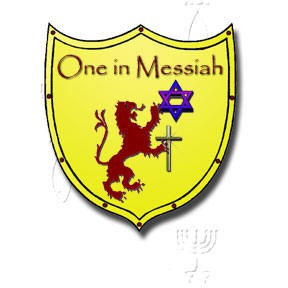Watch
Events
Articles
Market
More
WORD FOR TODAY "CHOOSE": Isa 56:4 For here is what Adonai says: "As for the eunuchs who keep my Shabbats, who choose what pleases me and hold fast to my covenant: Isa 56:5 in my house, within my walls, I will give them power and a name greater than sons and daughters; I will give him an everlasting name that will not be cut off.




Lily Portion for Today: Wednesday January 10
Ladies remember, HOPE is the word which YHVH Elohiym has engraved in the brain of every person of your family. (Prayer: Adonai Elohiym, we praise You for Your Word which always bring renewed hope whenever despair comes knocking at our door. Please strengthen my family daily with Your inextinguishable hope, amein)



https://open.spotify.com/track..../4qsGLavsH2x74pdqg63 #music



Too often we become complacent with what we read in the Bible. Matthew 24:7, “Nation will rise against nation, and kingdom against kingdom. There will be famines and earthquakes in various places.” The word earthquake used in this verse is Strong’s #g4578 and could also be used as storm or commotion. While many who study eschatology only look at earthquakes to determine the end of the age they should also consider storms that seem to be out of the normal parameters and also civil uprising. The way a word is translated sometimes limits the way we think about what is being communicated.



Shalom dear fellow Shofar Blowers and Listeners!
? Here is your Meeting Link:
https://dateful.com/eventlink/2753910087
Feel free to invite others using this link:
https://tube.ttn.place/v/KmZMaD
?Please let us know if you would like to lead worship in one of the next meetings, or know someone that would.
We are greatly Looking forward to sounding the Shofar with you in Jerusalem!
Shalom,
Camp Ephraim




Shalom dear fellow Shofar Blowers and Listeners!
Here is your Meeting Link:
https://dateful.com/eventlink/2753910087
Feel free to invite others using this link:
https://tube.ttn.place/v/KmZMaD
Please let us know if you would like to lead worship in one of the next meetings, or know someone that would.
We are greatly Looking forward to sounding the Shofar with you in Jerusalem!
Shalom,
Camp Ephraim




Q123: How many hogs killed themselves when the legion of demons was sent out of the demon possessed man?
#quiz
PS: Discussions are very welcome, but please do not give the answer away in your discussions.
Hint: Mark 5



STRENGTH
A healing prayer for physical strength
References:
Exodus 15:2 --- Psalm 28:7 --- Nehemiah 8:10 --- Isaiah 30:15 --- Proverbs 10:29 --- Isaiah 26:4 --- Daniel 11:32 --- Ephesians 5:18 --- Romans 8:11 --- 2 Peter 1:4 --- Habakkuk 3:19 --- Zechariah 4:6 --- Psalm 144:1 --- 2 Corinthians 12:10 --- John 15:16
Healing Promise:
“Adonai is my strength and song and He is become my salvation” (Exodus 15:2)
Healing Prayer:
Heavenly Abba, thank You for being my strength and my song; You truly are my strength and my shield and in Your joy I find my strength. Help me to remain quiet and confident at all times, because I realize this gives strength to me. With Your help I will endeavour to follow Your ways at all times, because I know this will bring strength to me. Indeed I will trust You forever, for You are my everlasting strength. Thank You for allowing me to know You Abba, for I realize that this makes me strong. Fill me with the Holy Spirit, because I know He will quicken my mortal body as He dwells within me. Thank You for all the dynamic promises of Your Word Abba. My Lord and my YHVH, You are my strength, and I know it is not by might nor by power, but by Your Spirit that I shall prevail. Thank You for His strength in my life Abba. I bless You O my YHVH, for You are my strength and You teach my hands to war and my fingers to fight. Therefore, I know I shall be strong. Thank You for giving Your strength to me Abba. In the All-powerful Name of Yeshua I pray, amein.


